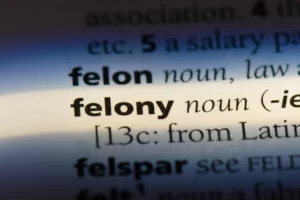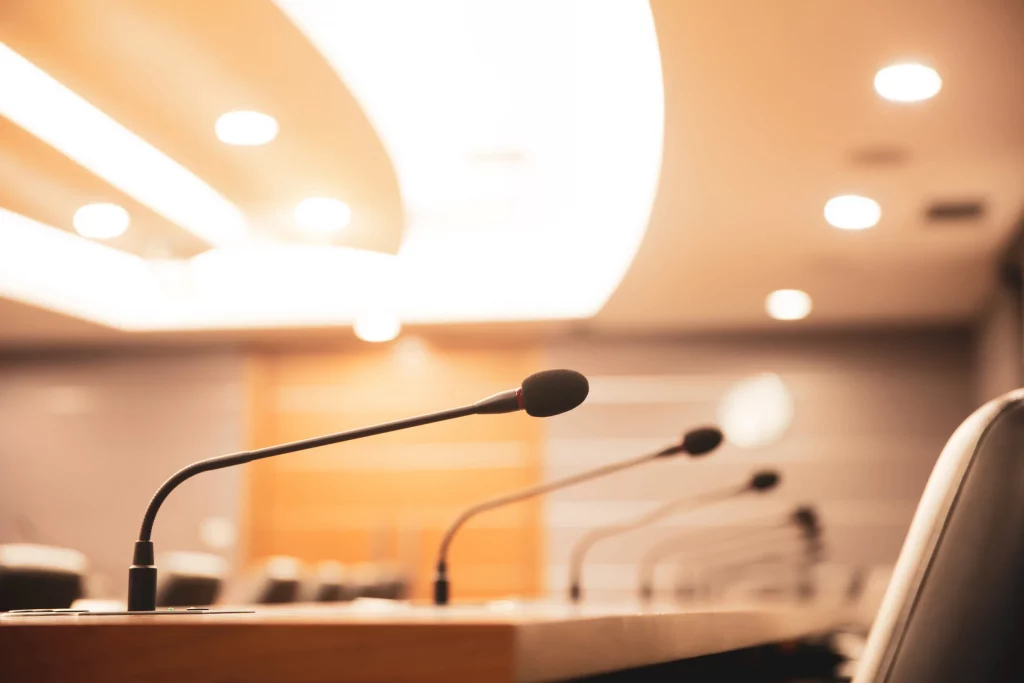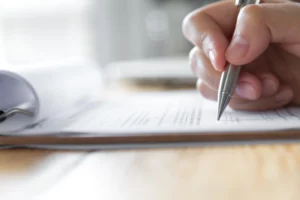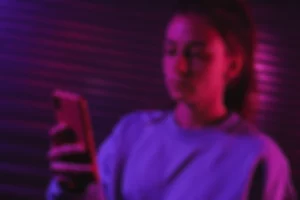
School Discipline Tribunal Representation

Educational Stability for Your Child
Facing a school discipline tribunal hearing is a serious matter. A child’s continuing education can be impacted by an undesirable ruling. We are passionate about protecting the rights of children, and this includes a child’s right to an education.
Some parents and guardians may not be aware, but students in Georgia are entitled to have legal counsel and representation throughout the school discipline tribunal process. And, in the event that the school discipline hearing with school officials results in a negative outcome, the expertise provided by a qualified juvenile law attorney is essential for appealing the decision.
You’ve Been Notified of the Tribunal Process – What Now?
Students accused of violating school policies are entitled to statutory and due process protections before a school can impose certain disciplinary actions. Georgia law prohibits students from being subject to long-term suspension (defined as more than ten (10) days) or expulsion without a disciplinary process (a tribunal) where the student can challenge the charged violation and the fairness of the discipline recommended by school administrators.
If a school administrator recommends suspension from school for less than or equal to ten (10) school days, the student must at least “be given oral or written notice of the charges against [the student] and, if [the student] denies them, an explanation of the evidence the authorities have and an opportunity to present [the student’s] side of the story.” The student can then be removed from school and does not have the right to a formal hearing or to appeal the suspension.
If, however, the school administrator recommends expulsion or suspension from school for longer than ten (10) school days, the student is entitled to written notice and a formal disciplinary hearing prior to the imposition of the expulsion or long-term suspension. This hearing is called a tribunal.
Before the School Disciplinary Tribunal – Know Your Rights
Right to Reasonable Notice
- Must be in writing.
- Must be served to a student’s parent/guardian personally, or by mail.
- Must contain the place, time, and nature of the hearing.
- Must contain the behavior alleged as violating school conduct.
- Must include the right to present evidence and be represented by counsel.
- Must be sent to all parties.
- Must be given before the hearing.
- Must include the name of any witnesses the school intends to call – along with the expected testimony.
Right to a Timely Hearing
Students are entitled to a timely hearing. Georgia law defines timeliness of the hearing as “no later than ten [10] school days after the beginning of the suspension unless the school system and parents or guardians mutually agree to an extension….” There should be a clear notice to the student that there will be a hearing, including the date, time, and location of the hearing.
The U.S. Supreme Court holds that “notice and hearing should precede removal of the student from school.” However, where the student’s presence creates a continued danger to persons or property or an ongoing threat of disrupting the academic process, then the student may be immediately removed from school with the notice and hearing following as soon as practicable.
Students have the right to delay the hearing, in order to prepare, including time to secure a lawyer. The State Board of Education has held that one day notice does not provide the student enough time to engage the services of an attorney or to secure witnesses. A teacher called as a witness must have at least three (3) days notice prior to the hearing, a requirement that suggests that the student should have at least an equivalent amount of time to prepare a response, retain counsel, and secure witnesses.
Demystifying The Tribunal Hearing
At the tribunal hearing, all parties may present and respond to evidence and may examine and cross-examine witnesses.
At the conclusion of the hearing, the hearing officer will issue a decision determining whether the child violated the school’s code of conduct and, if so, what disciplinary action should be taken. Disciplinary action may include, but is not limited to, short-term suspension, long-term suspension, or expulsion.
Under Georgia law, all parties at a public school disciplinary hearing are given an opportunity to present and respond to evidence and to question all witnesses on all issues unresolved. Witnesses may be questioned about any issues that are relevant to the charges against the student or the appropriate discipline. It is a violation of the student’s due process rights if you are not permitted to present witness testimony or to cross-examine witnesses on behalf of the student.
Appealing a Tribunal Decision – A Complex Undertaking
A student has the right to appeal any decision of the hearing officer, panel, or tribunal, imposing a long-term suspension of more than ten (10) days or expulsion. The appeal is made to the Local Board of Education (LBOE). The LBOE reviews the hearing record and takes the action it deems appropriate, including imposing more lenient or a harsher discipline than that imposed by the disciplinary tribunal.
If appealing the tribunal decision is appropriate, then the appellant must file a written notice within twenty (20) days from the date of the tribunal’s decision.
The time calculations for appeals include holidays and weekends. If the twentieth (20th) day falls on a holiday or weekend, the appeal must still be submitted prior to that holiday or weekend.
After receipt of the appeal, the LBOE shall review the record and render its decision in writing within ten (10) days (excluding weekends and public and legal holidays) from the date the LBOE receives notice of the appeal.
If the LBOE decision is adverse to the client, the attorney may file an appeal to the State Board of Education (SBOE) within thirty (30) days of that decision to the SBOE. Either party may appeal the decision to the SBOE. If the decision is appealed to the SBOE, both parties are required to file briefs with the SBOE. Oral arguments occur if either party or the hearing officer requests oral argument within ten (10) days of the docketing.
After the SBOE issues its decision, either party may then appeal to the Superior Court of the county where the LBOE is situated. The appeal must be filed within thirty (30) days from the decision of the SBOE. Within ten (10) days of the filing of such appeal, the State School Superintendent shall transmit a certified copy of the record, a transcript from the LBOE, the LBOE decision, and all orders of the SBOE to the Superior Court.
If the student receives an unfavorable ruling from the Superior Court, the attorney may file an application for discretionary review with the Georgia Court of Appeals.
Free Consultation with a School Tribunal Expert
Allow Georgia Children’s Defense to help you navigate the tribunal process and fight for your child’s education to remain un-impacted. Reach out to us today for a free consultation about your case.


When and Why are Children Detained in Georgia?
October 18, 2022

The Dangers of Sexting for Children
June 6, 2022

Interview with Josh Lingsch, Juvenile Defense Attorney
April 8, 2022

My child has been accused of a juvenile crime. What should I do?
November 24, 2021

Drug and Alcohol Charges for Children
October 23, 2021

